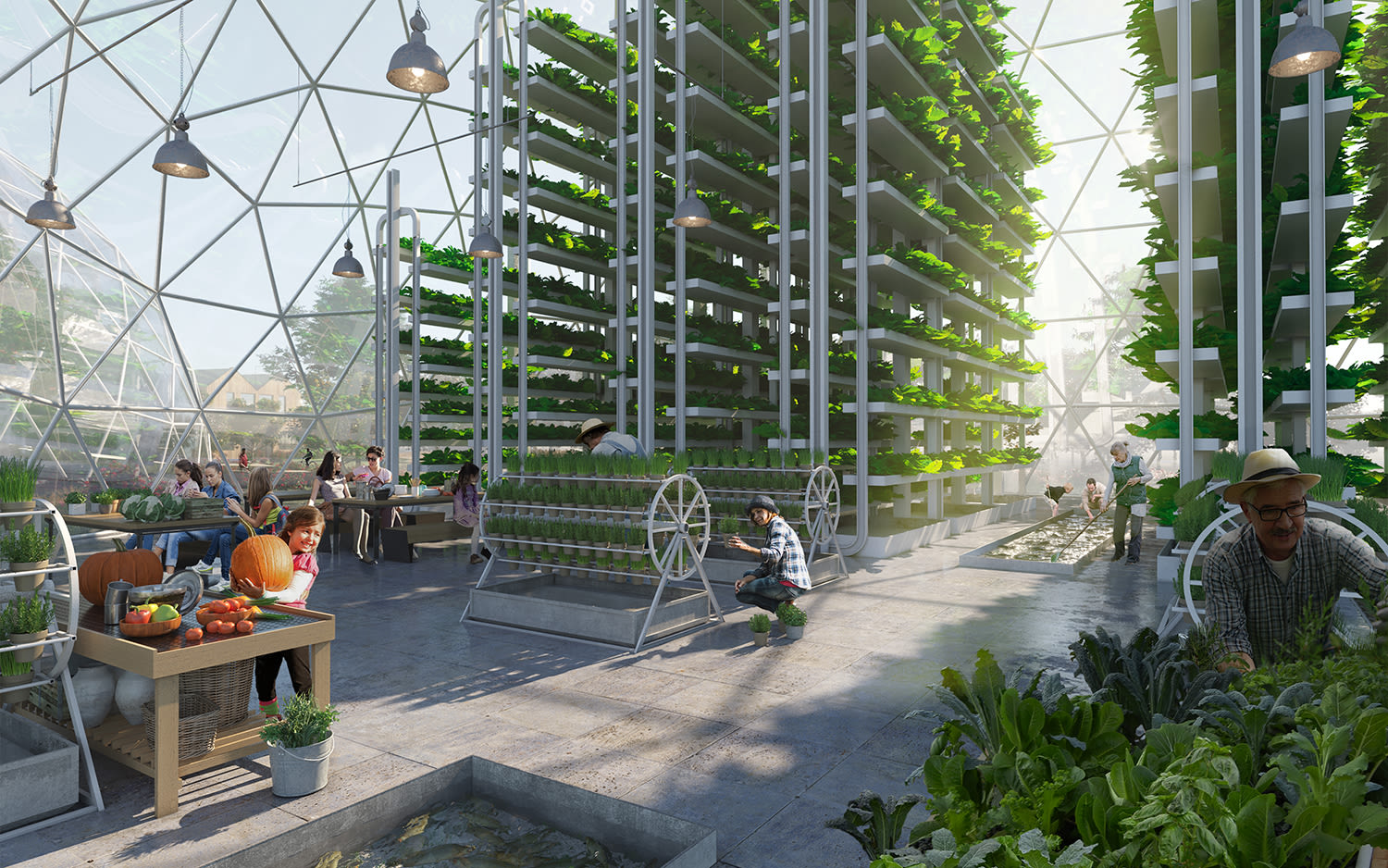Future of sustainable living: Rural areas minutes from major cities
Virgin Hyperloop is working to change the way we travel, making journeys between cities much quicker and easier than ever before. But how else will this incredible new technology change the way we live our lives?
In a recent interview with James Ehrlich, founder of ReGen Villages, Virgin Hyperloop explored what the future of living could look like.
“For years people thought I was crazy (and some still do) for this idea that the future of sustainable living is not in megacities at all but in small, biodynamic, resilient neighbourhoods in the peri-urban and rural areas,” James said. “We need a balance beyond these coastal megacities, which are especially brittle in terms of exposure to climate change and are not well equipped to feed 10 billion people.”
James’ idea focuses on creating resilient neighbourhoods, which generate their own power, grow their own food and are connected to each other and the larger metro area through a software operating system.
But there are misconceptions about eco-villages. “You don’t have to be a farmer or an engineer to live in the community,” James said. “The research that I’ve done over the past 15 years about eco-villages, intentional communities, co-housing, etc., is that the best, most successful communities have a collective management company that’s running things, and the people who live in the community pay a monthly association fee. There’s the expectation that for that fee, they have clean water, clean energy, a certain number of baskets of food delivered each month, and that there are organic circular waste systems. Now, of course, if they want to volunteer, then our idea is to use our village operating system software to ledger what each family contributes each month. And then we can then go ahead and reduce their monthly association fee or maybe even offset their mortgage or their rent by what they contribute to the community.”
The impact of COVID-19
The coronavirus pandemic has changed the way that a lot of people feel about where they live. As cities were locked down, people started dreaming of living somewhere with outdoor space, where they could be more self-sufficient. That is something that James and ReGen Villages aspire to offer.
James said: “I really believe the best case for our species on this planet long term is in the peri-urban and rural areas. These are areas that are in deep decline. And, at the same time, the land is either cheap or free. With prefab building, the right kind of permaculture design, and software to manage the communities, we can really bring the costs down.
“At the same time, with these villages you reduce the physical densification and allow for disconnection at will, where you know your food, energy, and water are covered. More importantly, you know you have a community that supports you. There’s a reason that when we announced our first housing spots, we immediately filled our waiting list.”
Transportation
James said that he was giddy when he heard about hyperloop. The technology that Virgin Hyperloop is developing could mean that cities that are 100km away from one of his villages can be reached in minutes.
He said: “I feel so confident that the moment one of these really gets implemented we can transform these places that some might call ‘the middle of nowhere’ into these thriving, resilient, regenerative areas.
“It's not just connecting one mega-city with another, in other words, but that there are places along the way. And with every one of those places along the way, it has been my dream, to be perfectly honest, to build a ReGen Village there (or at least a similar regenerative development using our VillageOS™software). Now you’re talking about something completely transformative: the freedom to enjoy a healthy lifestyle, to feel secure, to live in a beautiful area, and still live within commuting distance of a major metropolis and all its cultural opportunities.”
Read the full interview with James Ehrlich on the Virgin Hyperloop blog.
Visit Virgin Hyperloop to find out more.



